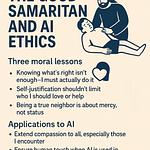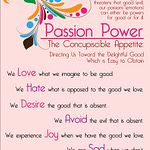Hello, everyone! Welcome to this week’s episode of Shattering Illusions focusing on the simulation hypothesis.
Here is an AI-transcribed summary of this podcast with my modifications:
In this first installment of our two-part series, Saro Meguerdijian explores the popular idea that our reality might be a computer-generated illusion—an idea now resurfacing with renewed interest in both popular culture and philosophy.
Why This Topic Is Everywhere Right Now
Over the last few decades, the simulation hypothesis has moved from obscure philosophical circles into mainstream conversation. Films like The Matrix, in which humanity is trapped within a computer simulation controlled by artificial intelligence, turned the simulation hypothesis into an emotionally gripping metaphor, while public figures such as Elon Musk, Scott Adams, and Rizwan Virk have kept it in the spotlight. Whether in tech conferences, science podcasts, or internet forums, the question “Are we living in a simulation?” has become a cultural touchstone—part curiosity, part existential challenge.
And yet, while it’s fun to speculate, it’s hard to actually live as if you’re in a simulation. To believe it consistently would mean treating the people you love (including your spouse and children), the food you eat, and the world you move through as mere code—something most of us instinctively resist. This tension between intellectual skepticism and lived reality is part of what makes the hypothesis so intriguing.
Episode Highlights
Two versions of the simulation hypothesis (based on Virk’s presentation):
We ourselves are fully generated by a computer—as artificial constructs.
We are conscious beings, yet everything we perceive exists within a simulated environment, akin to The Matrix scenario.
The Matrix’s cultural impact: The film's emotional, gripping narrative continues to popularize skepticism toward reality and shape how we imagine simulation.
Commercial and design motivations: The simulation hypothesis isn't just philosophical—it inspires how tech industries build immersive experiences (social media, AI companions, virtual/augmented reality), effectively creating micro-simulations that captivate users. The idea of a fully immersive simulation is, in some sense, the ultimate engaging platform.
Historical and philosophical roots:
Plato’s Allegory of the Cave: Prisoners mistake shadows on a wall for reality, until one escapes to discover the truth beyond the cave’s illusion.
Eastern traditions: The concept of Maya in Hinduism/Buddhism, where the world is considered illusory.
St. Augustine (City of God, Book 9, Chapter 26): He affirms certainty in his own existence—“If I am deceived, I am”—grounding truth even within deception.
Descartes’s “evil demon”: A hypothetical deceiver undermines all sensory certainty, prompting Cogito, ergo sum (“I think, therefore I am”).
Modern philosophy: Postmodern skepticism, Kant’s mind-constructed world, brain-in-a-vat scenarios, and strands of idealism all echo similar themes.
Contemporary discussion and critiques:
Simulation argument: Nick Bostrom’s reasoning suggests that if advanced civilizations run many ancestor simulations, the odds we live in one are high.
However, these ideas face serious challenges—self-undermining skepticism, lack of empirical evidence, and parallels to “brain-in-a-vat” scenarios that cast doubt on knowability.
Detecting a simulation? Contrary to skepticism, we may be able to detect clues of simulation through digital physics—the idea that if the universe is “computed,” it may exhibit discretization or observable artifacts; although current theories don’t seem to align cleanly with reality. (Side note: in recent times, Stephen Wolfram, a renowned computational scientist, seems to advocate for digital physics and the universe being a part of a large entanglement of computations called a “ruliad,” which leads toward the logical necessity of the universe—that is, the universe existing because it has to— and even modal realism, in which all possible worlds actually exist. This leads toward the idea of the multiverse, which is the idea that there are parallel universes to ours. All these ideas—the logical necessity of the universe, modal realism, and the multiverse—have severe philosophical problems.)
What’s Next?
In Part 2, we’ll continue this journey by examining whether the simulation hypothesis should be believed, what the practical commercial effects are of the simulation hypothesis on Silicon Valley's and the tech industry’s development, and how a Christian worldview responds to this radical skepticism.








Share this post